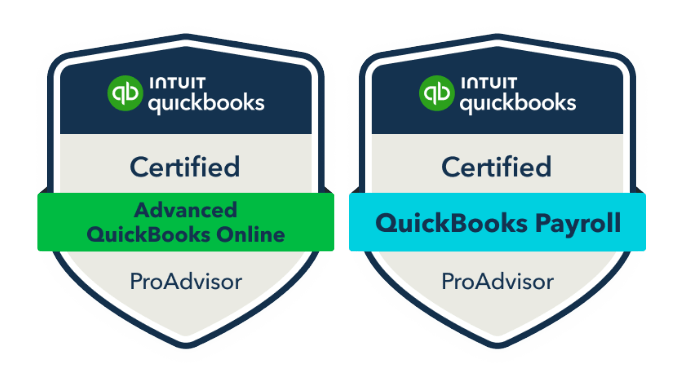Introduction
Tax season is stressful enough—don’t let bookkeeping mistakes make it worse! 😬 Many small business owners end up scrambling at the last minute, only to discover incomplete records, missing receipts, and misclassified expenses. The result? Costly tax penalties, time-consuming audits, or overpaying on taxes.
But don’t worry! Clean books = stress-free tax season. In this guide, we’ll walk you through how good bookkeeping habits can help you avoid IRS penalties, maximize deductions, and stay compliant all year long.
🚨 Common Tax Penalties (and How to Avoid Them!)
1. Late or Incorrect Tax Filings
Miss a tax deadline and the penalties can stack up fast. The IRS charges a late filing penalty of 5% of the unpaid tax per month, up to 25% of the total amount owed. Late payment penalties tack on another 0.5% per month.
State tax agencies also charge late fees, interest, and penalties—and trust me, they’re just as strict. California, for example, charges a 5% penalty plus 0.5% per month on unpaid balances. It adds up fast.
How to Avoid It:
- Mark tax deadlines in your calendar (federal, state, and local).
- Use accounting software like QuickBooks to track taxes owed and automate reminders.
- Don’t wait until the last minute—working with a bookkeeper throughout the year ensures you’re not racing the clock.
- If you know you’ll miss a deadline, file an extension. It doesn’t give you more time to pay, but it prevents the late filing penalty.
2. Misclassified Expenses = Missed Deductions (and Red Flags)
Misclassified expenses don’t just cost you money in lost deductions—they can raise red flags with the IRS. For example, putting a personal meal in the “Meals & Entertainment” category might seem small, but too many of those add up to… ✨ audit bait ✨.
Plus, if your deductions seem unusually high for your income, the IRS may take a closer look. And no one wants that kind of attention.
How to Avoid It:
- Use clear, consistent categories in QuickBooks—and customize them to your business when needed.
- Keep a separate business bank account and credit card to avoid mixing personal and business expenses.
- Review your Profit & Loss reports monthly and work with a bookkeeper to double-check categorizations.
📌 Need a crash course?: Learn The Right Way to Categorize Transactions in QuickBooks
3. Payroll Tax Errors
Payroll is one of the biggest areas where small businesses get into trouble. If you don’t withhold, deposit, or report payroll taxes correctly, the IRS charges a penalty of 2% to 15% depending on how late the payment is.
Worse? Unpaid payroll taxes can’t be discharged in bankruptcy. The IRS takes this seriously and can personally pursue business owners—even if it was just a mistake.
How to Avoid It:
- Use payroll software that automates calculations, withholdings, and tax filings.
- Confirm employees vs. contractors—misclassifying can trigger big penalties and back taxes.
- Don’t forget to file quarterly forms like 941, and state equivalents if applicable.
- Keep copies of W-2s, 1099s, and payroll registers in case of audit.
📌 Coming Soon: Read our Payroll Best Practices Guide
4. Not Keeping Receipts and Documentation
Missing receipts = disallowed deductions. And if the IRS audits you and you don’t have proof? That meal, mileage, or supply purchase might be wiped off your tax return.
The IRS can audit up to 3 years back, or up to 6 years if they believe you underreported income by 25% or more.
How to Avoid It:
- Use tools like QuickBooks Receipt Capture to store receipts digitally.
- Organize by category and date—don’t just dump them in a shoebox (even if it’s a really nice one).
- Keep supporting documentation for at least three years, and longer for asset purchases or major deductions.
📌 Watch for our upcoming article: Receipt Organization Guide.
5. Underreporting Income
Whether it’s forgetting to report PayPal income, Venmo biz payments, or a one-off gig—if the IRS finds unreported income, you could face a 20% accuracy penalty, plus interest and back taxes. And if it looks intentional? That jumps to a civil fraud penalty of 75% of the underpaid tax.
Yikes!
How to Avoid It:
- Reconcile your bank and payment accounts regularly to catch missing income.
- Match every invoice to a payment. No “oops, I forgot to log that” here.
- Use an income tracker to confirm you’re not missing anything—especially if you have multiple revenue streams (like selling products AND services).
📌 Want a step-by-step guide? Read our article: How to Reconcile QuickBooks Online.
6. Missing Forms = Major Hassle
If your records aren’t clean, you might miss a required form. Here are some of the most commonly overlooked ones:
- 1099-NEC for contractors (due Jan 31!)
- W-2s for employees
- Form 940/941 for payroll
- Schedule C for sole proprietors
- Sales tax reports, if your state requires them
Missing or incorrectly filed forms can lead to penalties—and in some cases, revoked business licenses.
How to Avoid It:
- Track vendor payments carefully to know who gets a 1099.
- Keep employee vs. contractor records clearly separated.
- Review last year’s filing to ensure all forms are included this year.
✅ How Clean Books Help You Save on Taxes
- Maximize Deductions: Categorize transactions correctly to claim every legal deduction—no more leaving money on the table.
- Avoid IRS Audits: Clean, consistent records are one of your best defenses against an audit.
- Stress-Free Filing: With everything in order, tax prep takes hours—not days (or weeks). That means less stress, fewer mistakes, and better results.
- Confident Planning: When your books are accurate, you can make smart decisions about spending, saving, and growth.
🎯 Pro Tip: Schedule a monthly bookkeeping review—it’s easier to fix small issues regularly than clean up a big mess at the end of the year.
Final Thoughts: Don’t Wait Until Tax Season to Fix Your Books!
Tax time doesn’t have to be a nightmare. By keeping clean, organized books all year long, you’ll avoid penalties, maximize deductions, and feel confident knowing you’re IRS-compliant and ready to grow your business.
💡 Need expert help? Whether you’re behind, overwhelmed, or just need a second set of eyes—we’re here to help. Let’s clean up your books and get you tax-ready. Book a Free Consultation






0 Comments